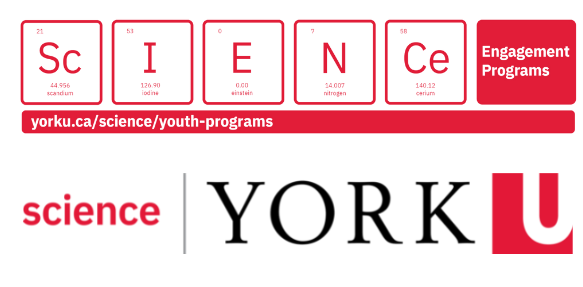

Microbes and Microplastics: Explorations in Environmental Biotechnology | Research Stream
Monday, July 21, 2025 - Friday, July 25, 2025
Ages 16-18 · Co-Ed
York University Keele Campus
•
4700 Keele Street
Toronto, ON, Canada
M3J 1P3
Monday, July 21, 2025 - Friday, July 25, 2025
Ages 16-18 · Co-Ed
York University Keele Campus
•
4700 Keele Street
Toronto, ON, Canada
M3J 1P3
This is a Spark Lab Research stream course and it is recommended students have a minimum overall average of 85%-90%. Dive into the fascinating world of environmental biotechnology, focusing on microbial processes that drive sustainable innovations. Through hands-on experiments and design challenges, explore advanced microplastics filtration techniques, fermentation optimization for renewable biofuel production, microbial physiology, and biofilm development. Learn about digital microscopy and colony analysis, conduct quantitative fermentation experiments, investigate biofilm reactor design for wastewater treatment, and complete a design challenge for a multi-stage filtration system prototype. Emphasizing data-driven inquiry and experimental design, the course fosters quantitative analysis, critical thinking, and interdisciplinary problem-solving skills, integrating scientific, economic, and environmental perspectives to equip students with the tools to propose sustainable solutions for real-world challenges. ABOUT THE INSTRUCTORS Lachi Wankhede and Gaurav Bhardwaj are doctoral candidates at York University, specializing in Civil Engineering and Civil and Environmental Engineering, respectively. Lachi, with degrees in Bioprocess Engineering and Biotechnology from IIT Roorkee, focuses on enhancing lipid accumulation in oleaginous yeast for sustainable biofuel production, integrating engineering principles with biological insights. She also contributes as a teaching assistant in Natural Sciences courses, reflecting her commitment to academic excellence. Gaurav, a Gold Medalist in Bioprocess Engineering from IIT Roorkee, researches the environmental impacts of microplastics in water treatment systems to improve water quality and public health. He actively engages in teaching and mentoring, with his work recognized through awards and publications. Both scholars aim to advance sustainable practices and innovative solutions in their fields.
York University Keele Campus
•
4700 Keele Street
Toronto, ON, Canada
M3J 1P3
Get Directions
Discuss This Activity